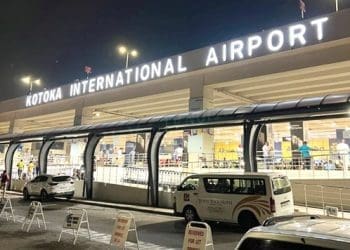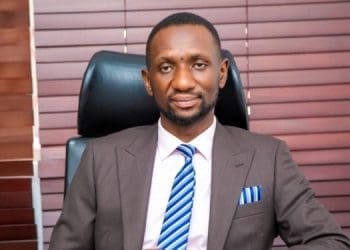President John Dramani Mahama has officially nominated His Lordship Justice Paul Baffoe-Bonnie for the position of Chief Justice of the Republic of Ghana.
The nomination, made in line with Article 144(1) of the 1992 Constitution, has been forwarded to the Council of State for consideration.
Justice Baffoe-Bonnie, a highly respected member of Ghana’s judiciary, has served with distinction across various levels of the legal system.
His career spans decades of service at the High Court, the Court of Appeal, and currently the Supreme Court, where he has built a reputation for diligence, integrity, and fairness.
Here’s what you need to know about the Justice Paul Baffoe-Bonnie
Early life and education
Date and place of birth: He was born on 26 December 1956.
Family background: His father was Opanyin Baffoe-Bonnie from Sewua (Bosomtwe district), and his mother was Ama Kyerewaa from Breman, Kumasi.
Basic/secondary education:
Primary/Middle schooling in Goaso Local Authority Primary and Middle Schools; he completed his middle school certificate in the late 1960s.
Secondary school at Konongo-Odumase Secondary School, where he obtained GCE Ordinary Level and Advanced Level certificates (around 1969-1976).
Higher education and legal training:
University of Ghana (law studies)
Ghana School of Law for professional legal training. He was called to the Bar in 1983.
Career path
Justice Baffoe-Bonnie has had a long and varied legal career, moving through different roles before reaching the Supreme Court and now serving in an acting capacity as Chief Justice.
Pre-judicial work:
Before full judicial appointments, he worked in the Ghana Prisons Service, reaching the level of Deputy Superintendent and serving as Head of Legal at the Prisons Headquarters.
Also worked with the Internal Revenue Service (IRS), where he served as Principal Inspector of Taxes and Head of Legal for the Eastern & Volta Regions.
Judicial appointments:
Circuit Court Judge in Kumasi
High Court Judge at Duayaw-Nkwanta
Appeals Court Judge in 2006
Appointed to the Supreme Court in June 2008 by President John Kufuor.
Notable judicial decisions:
He was on the panel of Supreme Court justices that handled the 2012 election petition from the New Patriotic Party (NPP), where the NPP asked that about four million votes be scrapped over alleged tampering. The petition was dismissed.
Acting Chief Justice
On 23 April 2025, Justice Baffoe-Bonnie became Acting Chief Justice of Ghana. This followed the suspension of Chief Justice Gertrude Araba Esaaba Sackey Torkornoo by President John Dramani Mahama.
The suspension came after three petitions alleging misconduct and incompetence were filed against Torkornoo, and a committee has been set up under constitutional provisions to investigate.
The process is guided by Articles 144(6) and 146(6) of Ghana’s 1992 Constitution, which make provisions for the Acting Chief Justice role when the Chief Justice is unable to perform duties or the position is temporarily vacant.
Attributes, reputation and focus areas
Justice Baffoe-Bonnie is generally seen as one of the more senior, experienced members of Ghana’s Supreme Court bench. His rise through various levels of the judiciary, combined with pre-judicial roles in prisons and tax/legal administration, gives him a broad view of Ghana’s legal system.
He is regarded for expertise in constitutional law, election law, taxation, prison administration, and issues of legal education.
As Chairperson of the General Legal Council, he has oversight over legal education and discipline matters.
Personal life
He is married to Patience Baffoe-Bonnie, who in March 2025 was appointed Director-General of the Ghana Prisons Service.
Children: He has at least one daughter (a medical doctor) among his children.
Significance and challenges in his current role
His assumption as Acting Chief Justice comes at a politically sensitive time, with serious allegations against his predecessor. Ensuring that the investigation proceedings are fair, transparent, and respectful of judicial independence will be a major test,
He must also manage the continuity of judicial functions and maintain public confidence in the system while the constitutional processes play out.
Another challenge is balancing his role as head of the judiciary temporarily, especially since he must sometimes delegate duties (for example, when he travels abroad), which raises questions of leadership handovers.













